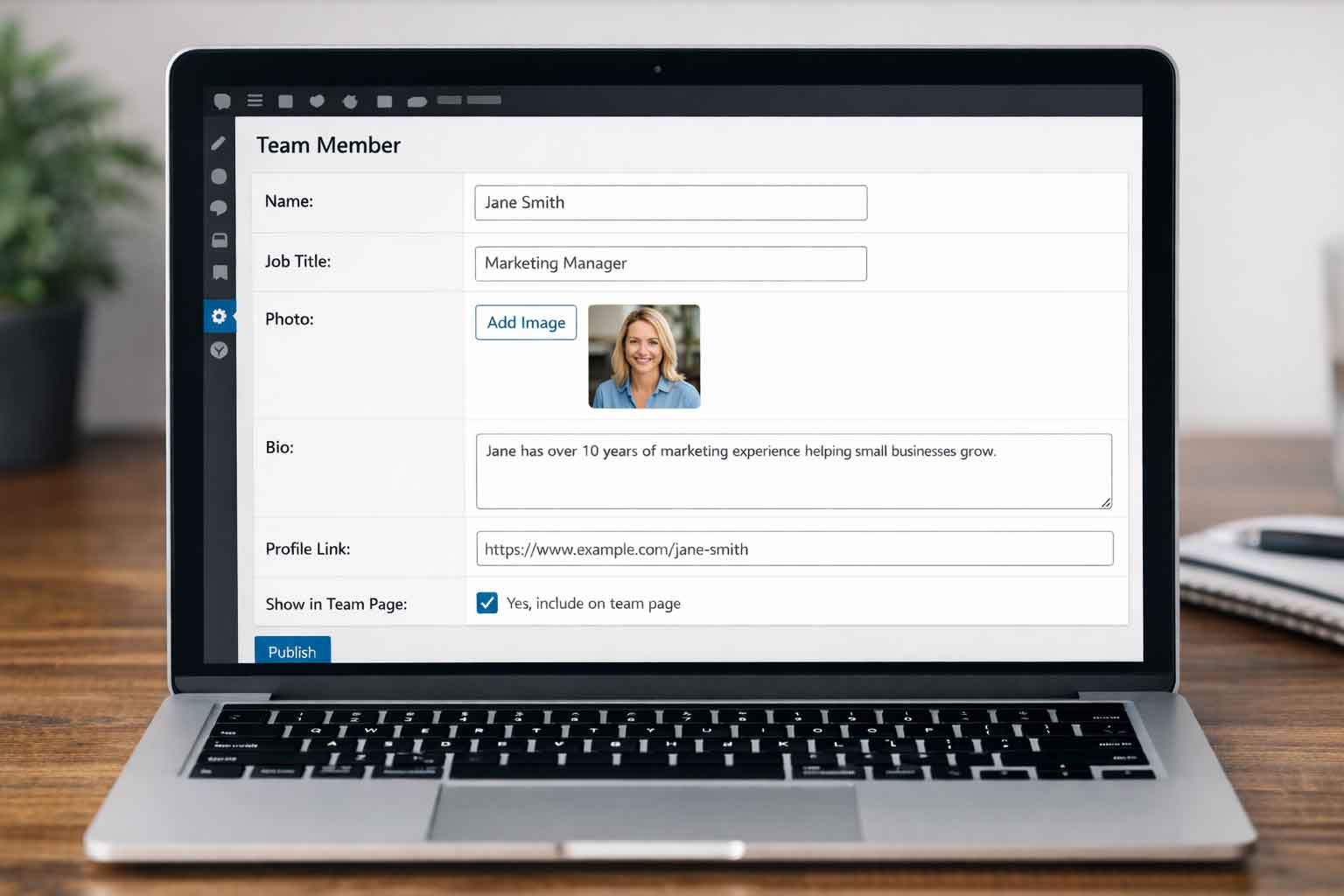What Every Business Owner Should Know About Their Domain
When setting up a website for the first time, one of the first steps that any business or nonprofit needs to do is register a domain name. But registering a domain isn’t as simple as walking into the Domain Name store and “buying” it. There are some key roles, regulations, and responsibilities to know when it comes to domain names – especially if you want to avoid some potential nightmares down the road. Let’s take a look into the basics of domain name ownership, who should be listed as contacts, what ICANN is, and why these details matter more than you might think.
Registrar vs. Registrant
There are two Domain Name related terms that often confuse people: the domain name Registrar and the domain name Registrant.
- A Registrar is the company that handles the reservation of your domain name. At Full Scope Creative, we’re a Registrar—we help our clients manage the registration process, keep contact information current, and ensure domains are renewed on time.
- A Registrant is the person or organization that registers and uses the domain name. That’s you—the business or nonprofit that owns the rights to use the domain.
Domain names have some similarities to renting an apartment. The Registrar is like the property manager making sure that everything is in order with the building. But the Registrant is the tenant – the person who actually rents the apartment and has the right to use the space (in this case, yourdomain.com).
Domain names aren’t bought – they’re registered
Despite what some web design companies might say, you never actually “own” a domain name, and certainly not forever. Domain names are simply registered. Usually this is done in one-year increments. You can register a domain name for multiple years at a time and often receive a discount on it.
If you forget to renew your registration, you are at risk of losing your domain registration. Once the registration is up and expired, it can be picked up and registered by someone else or even a competitor. That’s why it’s so important to work with a registrar that stays on top of renewals and expiration notices. At Full Scope Creative, every domain name we manage is set to have auto-renewal enabled. This makes sure we never accidentally lose a client’s domain name.
The Four Contacts Every Domain Needs
When registering a domain, there are four contact roles that must be assigned:
- Registrant (Owner Contact)
- Administrative Contact
- Technical Contact
- Billing Contact
Each contact has a specific role. Arguably the most important is the Registrant or Owner Contact. This should always be set to be the business owner or a high-level decision-maker in the organization. This is absolutely not a place to list your web designer, digital marketing agency, or IT company.
We’ve seen situations where a designer or agency lists themselves as the owner for one of their clients domain names. If that relationship ends, the business is left without access to their own domain and without legal action, very limited options on what to do. That’s not only frustrating but extremely risky. According to ICANN regulations, the owner contact must reflect the actual registrant: the person or organization that holds the rights to the domain.
If a registrar pays the yearly domain name registration fee, and then has the business pay them back for that registration, per ICANN regulation that business is to be listed as the rightful registrant (“owner”) of the domain name.
Why You Shouldn’t Use an @YourDomain Email for the Owner Contact
When adding in the contact info, it might seem logical to use an email such as yourname@yourdomain.com. What happens if your domain expires, or your email hosting goes down, or you lose contact with your registrar? You would then lose the ability to verify ownership or receive important notices.
That’s why for all of the domain names we manage for our clients we always have the clients list an email address that is NOT connected to the domain. We always have our clients list something like a Gmail, Yahoo, or other third-party email address. Something like yourname@gmail.com is far more reliable in case of emergency. And remember: update that email if it ever changes.
Keeping your contact information accurate and up to date is not just a best practice, it’s a requirement from ICANN.
Who (and What) Is ICANN?
You’ve heard ICAAN mentioned a few times in the article. ICANN stands for the Internet Corporation for Assigned Names and Numbers. ICANN is a global nonprofit organization that oversees the domain name system (DNS). They ensure that each domain name is unique and that the rules for registering and managing domains are followed worldwide.
ICANN is the reason why you can’t register a domain that someone else already has. ICANN also has several safeguards in place to prevent domain hijacking or impersonation. They set the guidelines for:
- How domain registrars operate
- What information must be collected when registering a domain
- How domain transfers work
- What happens when contact info is outdated or invalid
If your domain’s contact information is inaccurate or not verified, ICANN can suspend or even delete your domain. That’s why working with a knowledgeable registrar is essential—we make sure you stay in good standing.
What Can Go Wrong If You Don’t Follow These Guidelines?
There are some painful real-world problems that can happen when domain details aren’t handled properly:
- You could lose your domain if someone else is listed as the owner and chooses not to renew or transfer it.
- You might miss renewal notices if your contact info is outdated, leading to domain expiration.
- Email and website outages can block access to your @yourdomain email, making it impossible to recover login info or receive verification emails.
- Domain transfers become complicated when the listed owner is someone who’s no longer involved with your business.
These issues are more common than you’d think—and they can take weeks (and sometimes legal action) to resolve.
How Full Scope Creative Helps
At Full Scope Creative, we take domain management seriously. When we register a domain for a client, we:
- Ensure the business or nonprofit is listed as the Registrant (Owner Contact)
Use a reliable third-party email for verification - Handle renewals, contact info updates, and ICANN compliance
- Provide domain name privacy protection to shield your contact details from spammers
- Offer advice and support if you ever want to transfer your domain
In short, you get peace of mind that your domain is being managed properly—and that your business stays in control of its online identity.
A Small Detail with Big Impacts
Your domain name may only cost a few bucks a year, but it’s the foundation of your digital presence. Whether you’re a small business, nonprofit, or solo entrepreneur, making sure your domain contacts are correct and compliant is a critical part of protecting your brand.
If you’re not sure who’s listed on your domain or if your contact info is up to date, don’t wait. Let us take a look and make sure everything’s in order. Because in the world of websites, the fine print really does matter.









